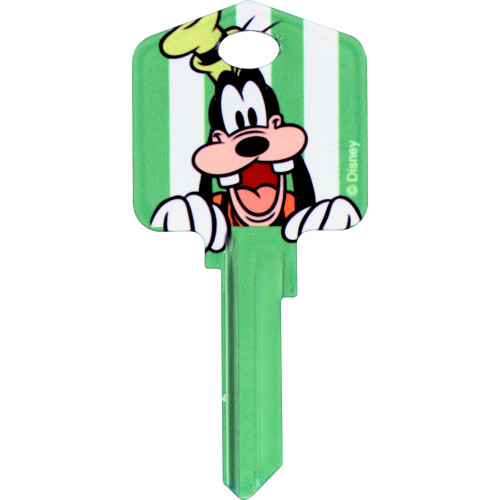

There is little question that the Disney board as it is now largely constituted gets an F. This one nails down the core of the Loeb thesis.

Wrong headed, revealing a naïveté about sports betting that gives pause to the validity of the spin off for that reason.Ībove: Globally sports betting is widely believed to be the fastest growing sub-sector of the entire gaming industry.ĥ. Spin off ESPN to holders with a debt load that will ease the leverage burden on the parent.
#Mickey mouse house key free#
Use revived free cash flow to continue passing on dividends, to liberate money to pay down debt, repurchases shares or reinvest in fat margin businesses.ģ.Integrate Hulu into Disney+ LTC platform to save costs, buy out the Comcast stake before these guys get too greedy and demand a massive premium.Ĥ. A program is needed that addresses this problem as well as disposing of underperforming assets.Ģ. Disney spends far too much money relative to potential returns. Up until then, we found most of Loeb’s suggestions viable, bearing a sound rationale to stir the contented house mice out of their holes and start the chase for the cheese.ġ.Cut costs. In brief, Loeb suggested a spin-off of ESPN to better and speedier facilitation of that brand to embrace sports betting ASAP. Of all the gentle prods Loeb laid out, one commands our attention from the gaming peanut gallery, if you will. Loeb laid out the usual kudos to management for their performance in various areas - but the mailed fist in the velvet glove that is the usually most accurate characterization of such letters was there for anyone to see. Loeb respectfully talked about consolidating Disney’s streaming verticals and speeding up of the company conversion of verticals to digital distribution growth trends overtaking the entire content business. Disney responded with the understandable, thanks but no thank kind of letter with the usual “hammada, hammada, hammada” “we’re working on that already” responses. While acknowledging the good performance, Loeb sent a Hart Scott Rodino letter to Disney CEO Chapek outlining five ideas to unlock significant shareholder value. The mouse house comes through again! But not everyone, we quickly learn, has picked up the pop poms.Įnter activist Dan Loeb’s Third Point indicating it had loaded up on the stock to the estimated level of $1b, with more to come we presume. Overall, it's fair to state that Disney’s earnings call moved the shares to $124.6 (from $112 on August 10 th) in a 52-week range, from $90.29 to $187.58. Not to worry, Disney has a new price tier for Disney+ which offers consumers a $7.99 monthly fee for ad-supported viewing or $10.99 for ad-free subscriptions. Gross profit of $7.82b produced operating income of $2.43b a decrease of 11.6% yoy of $2.75b. And overall operating margins on the services fell 6.8% to -18.1% - management attributed this to increased cost of content and programming. Hulu and ESPN were decidedly less robust.

Streaming services, passed the 221m mark for all platforms (up 7.5%), clocking a 144m increase for Disney+ for the quarter. To shorthand the results, we see this: Theme parks did great - undoubtedly benefitting from pent-up demand.

And to an extent, it was vindication well worth the twirling.
#Mickey mouse house key full#
The conventional pom pom waving of some The Walt Disney Company’s ( NYSE: DIS) fortress investors, who rarely see any long-term palpable rationale to support a bearish outlook on the stock, blossomed full force on the 3Q22 earnings release. “Balance every thought with its opposition, because the marriage of them is the destruction of illusion…” Above: Disney is still living off its genius founder's mind, his Pixar descendants and lots of superhero content created by comic artists in the '30s to '50s.


 0 kommentar(er)
0 kommentar(er)
